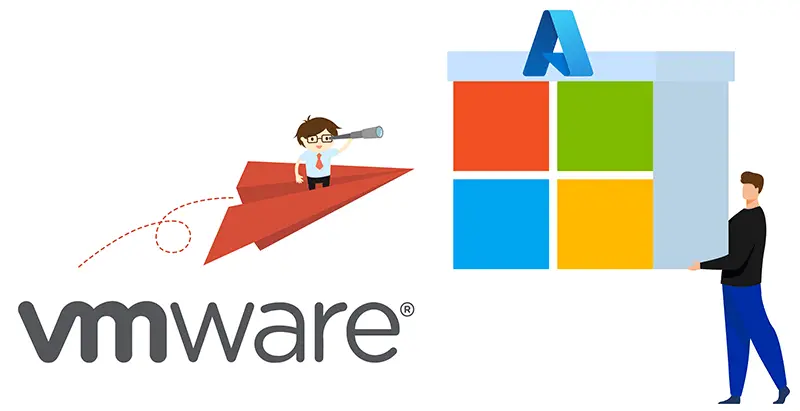
New licensing benefits and discounts for migrating VMware workloads to MS Azure VMware Solutions
Microsoft has introduced new licensing benefits and discounts to facilitate migrating and operating VMware workloads on Azure VMware Solutions. This initiative comes as many VMware customers reassess their options following recent licensing changes by VMware’s new parent company, Broadcom. Based on the VMware Rapid Migration Plan, the program offers consistent pricing and licensing advantages for workloads transitioning to the Azure VMware Solution platform. Customers can access reserved instances at fixed prices for one, three, or five years, providing a cost-effective alternative to the pay-as-you-go model.
Microsoft is further incentivizing this migration by offering a 20% discount on Azure VMware Solution for customers who purchase a new one-year reserved instance term before the end of the year. Additionally, the five-year reserved instance option will be available only until the end of June. Moreover, Microsoft provides up to $120,000 in Azure credits for customers who purchase a new reserved instance plan, which can be used for Azure VMware Solution or other Azure services. Customers can also opt for Microsoft’s Software Assurance product, which allows them to run Windows Server and SQL Server on Azure VMware Solution without incurring additional licensing costs and includes free Extended Security Updates for older versions.
Importance of hyperscalers for VMware
Hyperscalers play a crucial role for VMware. Microsoft launched its Azure VMware Solutions platform in 2019 as a collaboration between Microsoft, VMware, and former VMware parent company Dell Technologies. This hybrid-cloud partnership enables customers to run VMware’s software stack in Microsoft’s Azure public cloud. The platform is built on VMware Cloud Foundation (VCF), an integrated software stack that includes computing (vSphere), storage (vSAN), and network virtualization (NSX). VCF can be deployed both on-premises as a private cloud and in public clouds, and in this case, it is deployed in Azure.
This Azure product mirrors a similar solution VMware launched with Amazon Web Services (AWS) in 2016. It allows customers to run the same VMware software stack on-premises or in the AWS public cloud. The AWS-powered platform has been a critical success for VMware. Google Cloud joined this initiative in mid-2020, further expanding VMware’s collaborations with public cloud hyperscalers. Analysts highlight that VMware’s partnerships with AWS, Azure, and Google Cloud are essential for its ongoing operations and strategy.
Tracy Woo, a senior analyst at Forrester Research, mentioned in an earlier interview with SDxCentral that VMware will always have a role in virtualization technology. However, she suggested that VMware may no longer be the significant revenue engine it once was. According to Woo, VMware’s efforts to establish itself in a market dominated by public cloud providers could have been more impactful. While VMware has managed to carve out minor niche roles, it has yet to become a significant player.
The major players in the cloud industry are increasingly hyper scalers, who continue to dominate the public cloud space and are expanding their presence in the private cloud arena. According to Flexera’s “State of the Cloud 2023” survey, Microsoft’s Azure Stack is the leading private cloud technology enterprises use to run workloads. AWSAWS’ Outposts, Microsoft’s System Center, and VMware’s vSphere/vCenter follow Azure Stack.
VMware has been attempting to expand its influence in hybrid cloud management with its Tanzu cloud-native platform. This effort has helped VMware achieve leadership in this space, as recognized by Forrester’s platform ranking.
Responding to Broadcom's actions
In response to Broadcom’s recent changes to VMware’s operating model, Microsoft has introduced new licensing benefits and discounts. These moves, made a few months after Microsoft expressed its support for VMware’s new direction under Broadcom, represent a significant vote of confidence. Microsoft’s latest offers are a strategic response to Broadcom’s controversial licensing changes.
Omar Khan, General Manager for Azure product marketing, stated that many customers are reassessing their approach to managing VMware workloads and deciding whether to maintain them on-premises or migrate them to the cloud. Khan emphasized that it will entail investing time and resources regardless of the chosen path. He described this as an opportunity for customers to deliberate on their long-term platform strategy, ensuring that resources are allocated efficiently to minimize technical debt and pave the way for future success.
Broadcom and VMware have attempted to elucidate the numerous changes, including several blog posts authored by Broadcom CEO Hock Tan.
Why not use any-to-any Hystax Acura Cloud Migration software? If you intend to migrate securely and cost-effectively from VMware to OpenStack due to the flexibility and freedom of any vendor lock-in that OpenStack offers, see the Hystax Acura cloud migration demo for more details. Feel free to contact us to learn more about our special VMware migration package.